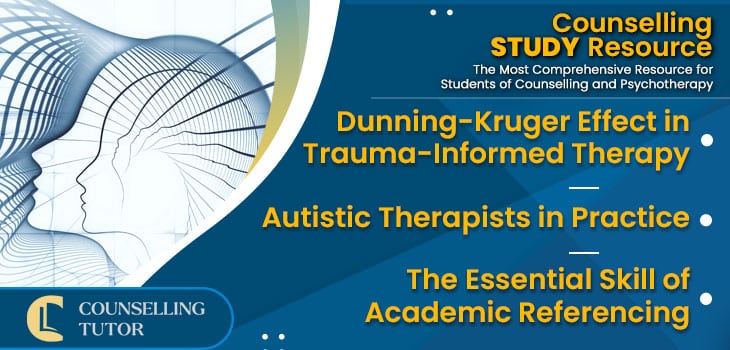See Counselling Skills Used in Real Sessions by Qualified Therapist
Real Sessions – Real Presentations – Real Skills
Gain the competence and confidence to use counselling techniques effectively!

In Episode 333 of the Counselling Tutor Podcast, your hosts Rory Lees-Oakes and Ken Kelly, take us through this week’s three key topics:
Dunning-Kruger Effect in Trauma-Informed Therapy
Working with trauma requires ongoing learning, and in this section, Rory and Ken discuss the dangers of overestimating our competence and the need for continual professional development:

Real Sessions – Real Presentations – Real Skills
Gain the competence and confidence to use counselling techniques effectively!
In this week’s ‘Practice Matters’, Rory speaks with an autistic therapist about navigating the profession while being neurodivergent.
Key points from the conversation include:

On-demand access to a rich lecture library covering theory, skills, and professional development for counselling students—Mapped to the UK awarding body criteria
“The Student Library has been BRILLIANT, I can’t recommend it enough!
It has been a lifeline in helping me prepare for practice and my first clients. If you’re considering it, go-for-it, it’s absolutely worth it!”
Kelly – Graduated and now in practice.
Accurate referencing is an essential skill in academic writing. In this section, Rory and Ken explore best practices for referencing and common mistakes to avoid:
Dunning-Kruger Effect in Trauma-Informed Therapy

Get on-demand Certified CPD that is implementable in your practice
